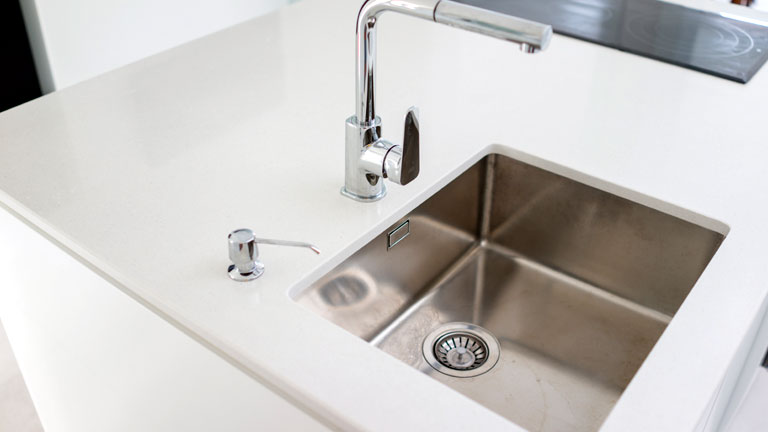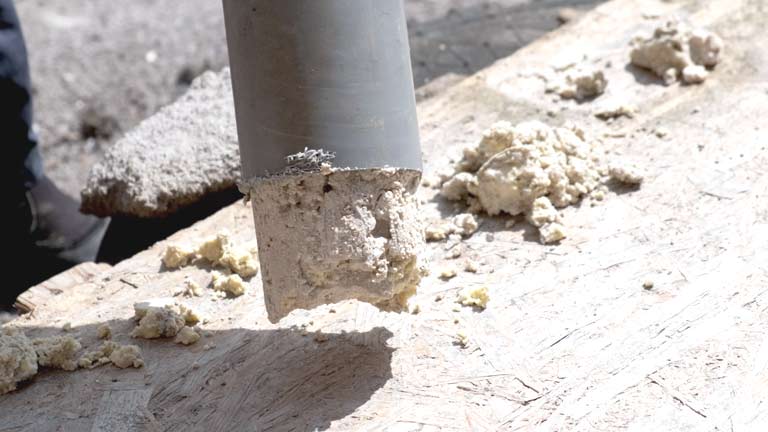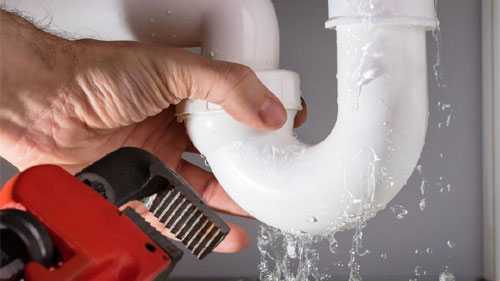
Many people treat their sink as a magic portal that washes away their messes, and as soon as it’s out of sight they’re gone forever. Unfortunately, many common household food items that we regularly pour down the sink are causing havoc on our pipes, septic systems, the public sewer system, and the environment.
We’ve reached out to the blocked drain specialists to provide us with the 7 most common things people regularly pour down the sink that’s clogging their drains, so you can avoid these costly mistakes and keep your plumbing in good condition.
1. Coffee Grounds
“But I’ve always poured them down the sink, and I’ve never had a clogged drain!” you could argue. Hate to break it to you, but every time you send them down the sink you could be making a very expensive mistake. Coffee grounds are made from coffee beans that are almost rock-hard by the time they’re ground and brewed. You wouldn’t crush up the pit from a peach or nectarine. Well, they have roughly the same hardness. And since it wouldn’t break down like other foods, the same goes for coffee beans!
They’ll cluster together, and over time, the grinds can create a clump within your drain, catching other food and clogging your pipes.
2. Grease, Oils & Fats
Any of these three slimy things can combine with other nasty things to clog your plumbing and cause sewage blockages known as fatbergs, and they’re nasty. Thick coagulations of muck can form in your pipes and grab onto anything solid that passes through, creating a dense blob that can be incredibly difficult to remove. So what exactly are the things you should avoid putting down on the sink?
Grease: Bacon, sausage, poultry, skin from boiling chicken, gravy, and anything that’s cooked and melted off meat.
Oils: Mayonnaise, cooking oil, olive oil, salad dressings, and many kinds of sauces
Fats: Butter, milk, cheese, and other dairy products, nut butter, and lard.
3. Pasta & Rice
When pasta, noodles, and rice grains are dried, they are much smaller than when they are cooked. When rice is cooked in liquid, it swells to around four times its original volume. As a result, it’s simply common sense to avoid putting water-absorbent food down a damp sink or garbage disposal, which can quickly clog the drain. It’s better to throw noodles and rice in the trash, but it’s acceptable if a stray noodle or rice grain slips down the drain. Don’t put a cup of rice in there, or you’ll soon be dealing with a backed-up sink.
4. Flour
While the sink may appear to be a convenient way to dispose of food goods such as flour at the time, this decision will almost certainly come back to haunt you in the form of plumbing issues. Flour, being a culinary staple, frequently ends up in the drain rather than in the trash. When flour is mixed with water, it coagulates and clings to the edges of pipes. This sticky, gooey mess grabs onto other particulates, that’ll grow into a big blob that’ll clog your drain.
5. Fibrous vegetables
Celery, corn husks, and asparagus are fibrous items that clog up your sink. These threads can become hooked around the blades of trash disposal, and if you drop celery or other fibrous items down your sink regularly, those strands can form a food hairball.
6. Potato Peels
Potato peels appear harmless at first glance but putting them down the sink or garbage disposal can create major problems. It only takes a handful to block a drain, and because they’re high in starch, they tend to clump together and solidify into a paste-like substance.
7. Seeds, Pits & Kernels
It’s unlikely you’ll drop something as large as a peach pit down the drain, but you might not think twice about cherry pits or apple seeds, but they can clog your drains just like the big ones. Also, unpopped kernels from your popcorn bag can expand in your pipes and cause a major headache.
Chia seeds can absorb up to 27 times their own weight in water, so you can imagine what can happen if you pour a handful of them down the drain.




